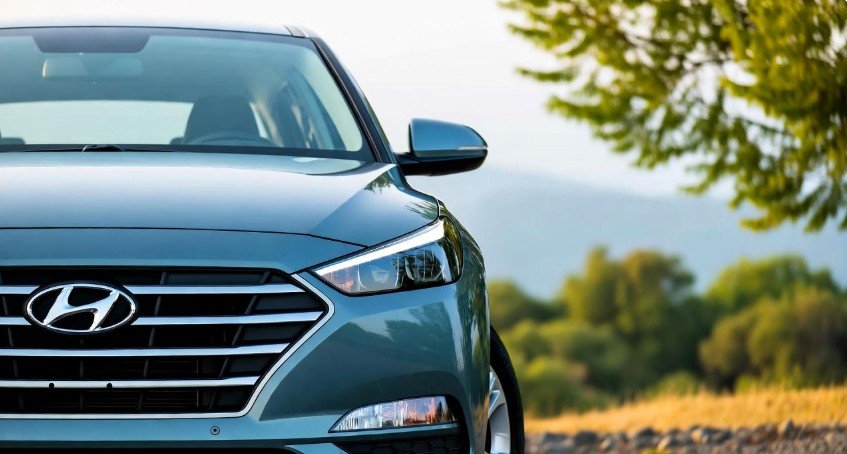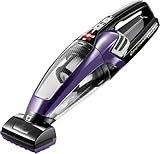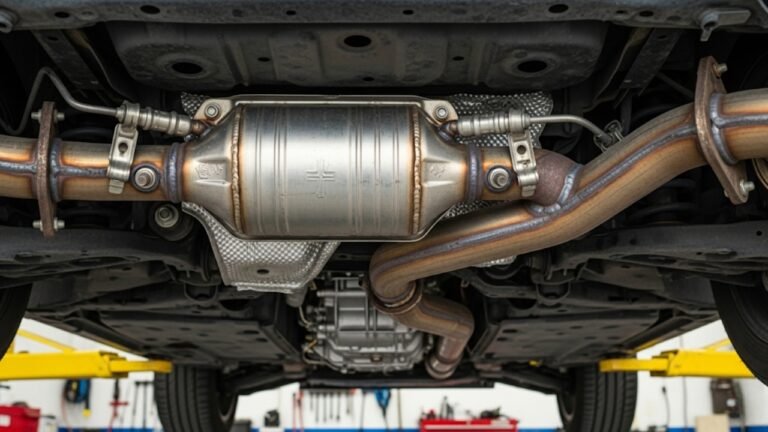Is Hyundai Warranty Transferable: All You Need to Know

Buying a car is not just a financial decision—it’s an emotional one. You want peace of mind knowing that your investment is protected. That’s where a warranty comes in. If you’re thinking of buying or selling a Hyundai, you might be wondering: is Hyundai warranty transferable? The answer is yes, and this feature is one of the biggest advantages of owning a Hyundai.
In this detailed guide, I’ll walk you through everything you need to know about Hyundai’s warranty transfer process—how it works, what’s covered, what’s not, and why it matters if you plan to sell your car someday. Let’s dive in with a friendly, easy-to-understand breakdown that feels more like a chat than a manual.
In This Article
- 1 What Exactly Is the Hyundai Warranty?
- 2 Why Warranty Transferability Matters
- 3 Is Hyundai Warranty Transferable to a New Owner?
- 4 How the Transfer Process Works
- 5 Real-Life Example: Why This Matters When Selling
- 6 Benefits of Hyundai Warranty Transferability
- 7 Important Limitations You Should Know
- 8 The Value of Hyundai’s Confidence in Its Vehicles
- 9 How to Maintain Warranty Validity
- 10 Tips Before Selling a Hyundai Under Warranty
- 11 Common Myths About Hyundai Warranty Transfer
- 12 Should You Buy a Used Hyundai With Warranty Left?
- 13 FAQs About Hyundai Warranty Transfer
- 14 Conclusion
What Exactly Is the Hyundai Warranty?
Before we jump into transferability, it’s important to understand what the Hyundai warranty actually covers. Think of it as your car’s safety net. When you buy a new Hyundai, you’re not just getting a car—you’re getting a promise.
Hyundai offers one of the best warranties in the automotive world. Their standard 5-year/60,000-mile New Vehicle Limited Warranty covers repairs and defects that may occur under normal use. This includes the engine, transmission, and even the electrical system. So if something goes wrong due to a manufacturing defect, Hyundai steps in to fix it without charging you a penny.
It’s part of what makes Hyundai stand out among its competitors. Brands like Honda and Toyota offer solid warranties too, but Hyundai’s coverage often goes further, offering more years of protection and greater peace of mind.
To give you a quick overview, here’s what Hyundai’s warranty typically includes:
| Type of Coverage | Duration / Mileage | What It Covers |
|---|---|---|
| New Vehicle Limited Warranty | 5 years / 60,000 miles | Covers most components (bumper-to-bumper) |
| Powertrain Warranty | 10 years / 100,000 miles | Covers engine, transmission, and drivetrain |
| Anti-Perforation Warranty | 7 years / Unlimited miles | Protects against rust and corrosion |
| Roadside Assistance | 5 years / Unlimited miles | 24/7 towing, jump-starts, and lockout help |
| Hybrid / EV Battery Warranty | 10 years / 100,000 miles | Covers hybrid and electric vehicle batteries |
These coverages show Hyundai’s confidence in its vehicles. They’re not just building cars—they’re building trust.
Why Warranty Transferability Matters
Now, let’s talk about why this even matters. Imagine you’re selling your Hyundai after three years of use. You’ve taken good care of it, and it’s still under the warranty period. If the Hyundai warranty is transferable, the next owner gets to enjoy the remaining coverage.
That’s a huge selling point. It makes your car more valuable and more attractive to buyers. People love peace of mind, and knowing that they’ll be protected under the original manufacturer’s warranty can make them more confident about buying your car.
For the buyer, it’s equally beneficial. They get a used car that still carries the protection of Hyundai’s promise. That means fewer worries about expensive repairs and more assurance about the car’s condition.
Simply put, Hyundai’s transferable warranty adds value, trust, and protection for both parties—something few other brands do so seamlessly.
Is Hyundai Warranty Transferable to a New Owner?
The big question—is Hyundai warranty transferable? Yes, absolutely. Hyundai allows the warranty to transfer automatically when ownership changes, as long as the vehicle is still within its coverage period.
That means if you sell your Hyundai before the 5-year/60,000-mile limit, the new owner automatically inherits whatever time and mileage are left. There’s no special form, no transfer fee, and no complicated paperwork. It’s straightforward—just like Hyundai wants car ownership to be.
However, there’s one small detail worth noting: the 10-year/100,000-mile Powertrain Warranty is only available to the original owner. When the car is sold, this specific coverage reduces to 5 years/60,000 miles for the new owner. So while the rest of the warranty coverage transfers, the extended powertrain protection does not.
Here’s a quick comparison to make it easier:
| Warranty Type | Original Owner Coverage | Transferred Coverage |
|---|---|---|
| New Vehicle Limited | 5 years / 60,000 miles | Remainder transfers automatically |
| Powertrain | 10 years / 100,000 miles | Converts to 5 years / 60,000 miles |
| Anti-Perforation | 7 years / Unlimited miles | Fully transferable |
| Roadside Assistance | 5 years / Unlimited miles | Fully transferable |
This table helps clarify how the warranty continues for the next owner.
So yes, Hyundai warranty is transferable, but the exact coverage level depends on which part of the warranty you’re talking about.
How the Transfer Process Works
Here’s where things get even simpler. The process of transferring Hyundai’s warranty doesn’t require extra effort. When you sell your car, the warranty follows the car—not the owner.
In most cases, all you need to do is ensure the new owner has access to the car’s service records and maintenance history. Hyundai service centers already keep digital records, so even if you misplace a few receipts, the dealership can verify the maintenance details.
If you want to make the transfer as smooth as possible, here are a few quick tips:
-
Keep your maintenance receipts and service history organized.
-
Make sure the new owner gets a copy of the vehicle’s Owner’s Manual and warranty booklet.
-
Confirm that all recommended services were completed on time.
-
Visit a Hyundai dealership for any final inspection before selling.
Once the car changes hands, the new owner can visit any authorized Hyundai service center to continue benefiting from the remaining warranty coverage.
Real-Life Example: Why This Matters When Selling
Let’s make it relatable. I once helped a close friend sell her Hyundai Tucson. She had owned it for about three years and was ready to upgrade. When we listed the car online, the first thing many potential buyers asked was, “Is the Hyundai warranty transferable?”
When we explained that yes, the car still had two years of warranty coverage left that would carry over, interest shot up immediately. Buyers saw it as a sign that the car was reliable and backed by Hyundai’s promise.
She ended up selling it faster—and for a better price—than other similar listings. That’s the power of a transferable warranty. It’s not just paperwork; it’s a trust booster.
Benefits of Hyundai Warranty Transferability
The advantages of Hyundai warranty transferability go beyond just resale value. It adds tangible and emotional benefits for both buyers and sellers.
Here are some key perks:
-
Peace of mind for the buyer: They know that the car is still under manufacturer protection.
-
Better resale value: A transferable warranty can make your used Hyundai more appealing in a competitive market.
-
Brand trust: Hyundai’s transfer policy demonstrates confidence in their vehicles’ quality.
-
Reduced repair costs: New owners can enjoy coverage for repairs that might otherwise be costly.
-
Effortless process: The automatic transfer means no paperwork hassle or additional costs.
It’s a win-win situation. And this simple feature often becomes a deciding factor when buyers are choosing between similar used cars.
Important Limitations You Should Know
Now, as great as the Hyundai warranty transfer is, it’s not without a few limitations. These details are crucial to understand so you don’t face surprises later.
First, the 10-year Powertrain Warranty is not fully transferable—it shortens to 5 years or 60,000 miles once ownership changes. So, if you’re buying a used Hyundai, you won’t get the same long-term coverage as the original owner.
Second, warranties don’t cover every issue under the sun. Damage caused by accidents, misuse, neglect, or unauthorized modifications isn’t covered. Even small things like aftermarket parts can sometimes affect the warranty status.
Third, maintenance matters. Hyundai requires that the car is maintained according to the manufacturer’s guidelines. Skipping oil changes or using non-approved parts could void certain parts of the warranty.
Here’s a quick summary of what’s not covered:
-
Normal wear and tear (like tires and brake pads)
-
Cosmetic damage or paint chips
-
Accidents or environmental damage
-
Unauthorized modifications
-
Lack of proper maintenance
Being aware of these exclusions helps you keep your warranty valid and effective.
The Value of Hyundai’s Confidence in Its Vehicles
Hyundai’s decision to offer a transferable warranty says a lot about the company’s confidence. They’re essentially telling customers, “We believe in our cars so much that we’ll back them up even after you sell them.”
This kind of assurance builds long-term trust. Many people who buy a used Hyundai end up staying loyal to the brand because of positive experiences like this. It’s more than just marketing—it’s a commitment.
It also reflects Hyundai’s evolution as a brand. Decades ago, they were seen as a budget-friendly option. Today, they’re recognized for quality, design, and innovation. The transferable Hyundai warranty has played a big role in that transformation.
How to Maintain Warranty Validity
Owning a Hyundai is exciting, but to make the most of your warranty—especially if you plan to sell it later—you need to follow a few simple rules. The key is proper maintenance and care. Hyundai’s warranty coverage relies heavily on the vehicle being serviced according to their schedule. Missing oil changes, skipping recommended inspections, or using aftermarket parts that aren’t approved can jeopardize the warranty.
Many owners overlook small things like tire rotation or cabin air filter replacement, thinking these are minor. In reality, these are part of the maintenance schedule that keeps the warranty valid. Hyundai wants your car to perform at its best, so they encourage owners to follow the guidelines strictly. Keeping detailed service records also makes transferring the warranty to the next owner seamless. It’s not just about paperwork—it’s proof that the car has been loved and cared for.
Tips Before Selling a Hyundai Under Warranty
Selling a Hyundai with warranty still active is a golden opportunity to maximize resale value. Here’s how you can make the most of it:
-
Highlight the transferable warranty: When listing your car, explicitly mention that the Hyundai warranty is transferable. It reassures buyers instantly.
-
Organize service history: Collect all receipts and records to show the car has been properly maintained.
-
Inspect the vehicle: A pre-sale inspection at a Hyundai dealership can ensure everything is in tip-top shape.
-
Clean and detail the car: Presentation matters. A well-maintained exterior and interior can complement the value of a transferable warranty.
-
Educate the buyer: Explain which parts of the warranty transfer fully and which do not. Transparency builds trust.
Following these steps can help you sell your car faster and often at a better price than comparable vehicles without transferable warranties.
Common Myths About Hyundai Warranty Transfer
There are a few misconceptions about Hyundai warranty transfer that often confuse buyers and sellers. Clearing these up can save you headaches:
-
Myth: “All parts of the warranty transfer fully.”
Fact: While most of the New Vehicle Limited Warranty does transfer, the 10-year/100,000-mile Powertrain Warranty reduces to 5 years/60,000 miles for the new owner. -
Myth: “Transferring the warranty costs money.”
Fact: Hyundai does not charge a fee for warranty transfer. It happens automatically once ownership changes. -
Myth: “Used cars are not covered under warranty.”
Fact: Any Hyundai sold within the warranty period still has coverage. This makes used Hyundais more appealing than many other brands. -
Myth: “You can void the warranty by selling the car.”
Fact: Selling your Hyundai does not void the warranty. The coverage continues with the new owner, assuming maintenance guidelines were followed.
Understanding these myths helps buyers make informed decisions and sellers confidently market their cars.
Should You Buy a Used Hyundai With Warranty Left?
Buying a used Hyundai can be stressful if you’re worried about repairs. That’s where the transferable warranty shines. A used Hyundai under warranty gives buyers the confidence of a newer vehicle without the full price tag.
Imagine this scenario: you find a 3-year-old Hyundai Sonata that’s still covered by the remaining 2 years of the New Vehicle Limited Warranty. Compared to a similar car from another brand without warranty, this Sonata instantly feels more secure. You know that if a covered part fails, Hyundai has your back.
This feature not only reduces the risk of unexpected repair costs but also makes it easier to budget for maintenance. In many cases, the peace of mind you get from a transferable warranty is worth more than a few hundred dollars in savings on a cheaper car.
FAQs About Hyundai Warranty Transfer
1. Is Hyundai warranty transferable automatically?
Yes, the warranty transfers automatically when the vehicle is sold, provided it is still within the coverage period.
2. Are there any fees for transferring the warranty?
No, Hyundai does not charge a fee. The process is seamless and included as part of vehicle ownership.
3. Does the 10-year powertrain warranty transfer to a new owner?
Partially. It reduces to 5 years/60,000 miles for the new owner. Other warranty coverage transfers fully.
4. Can a used Hyundai without service records still transfer the warranty?
While records help, Hyundai service centers can usually verify maintenance history electronically. However, missing maintenance may affect certain claims.
5. Do aftermarket modifications affect warranty transfer?
Yes. Non-approved modifications or parts can void certain warranty claims, so it’s best to stick with Hyundai-approved components.
6. How does warranty transfer affect resale value?
Cars with a transferable warranty are more appealing to buyers, often selling faster and at a higher price than similar vehicles without coverage.
7. Can a Hyundai warranty transfer more than once?
Yes, it can transfer to subsequent owners as long as it’s within the coverage period.
8. Does roadside assistance transfer with the warranty?
Yes, Hyundai’s roadside assistance coverage transfers fully to the new owner.
Conclusion
Understanding is Hyundai warranty transferable is crucial whether you’re buying or selling a Hyundai. This feature adds tangible and emotional value, giving peace of mind to both parties. From the original owner to subsequent buyers, the warranty ensures continued protection for covered components, reduces repair costs, and enhances resale value.
Owning a Hyundai with transferable warranty is more than just a convenience—it’s a symbol of trust, reliability, and confidence in the vehicle. Whether you’re looking for your first Hyundai, upgrading, or buying a used one, knowing that the warranty transfers seamlessly allows you to make decisions with clarity and confidence.
So, if you’re planning to sell or buy a Hyundai, remember this simple truth: the warranty stays with the car, not the owner. Drive confidently, knowing that Hyundai has got your back, no matter who’s behind the wheel.






